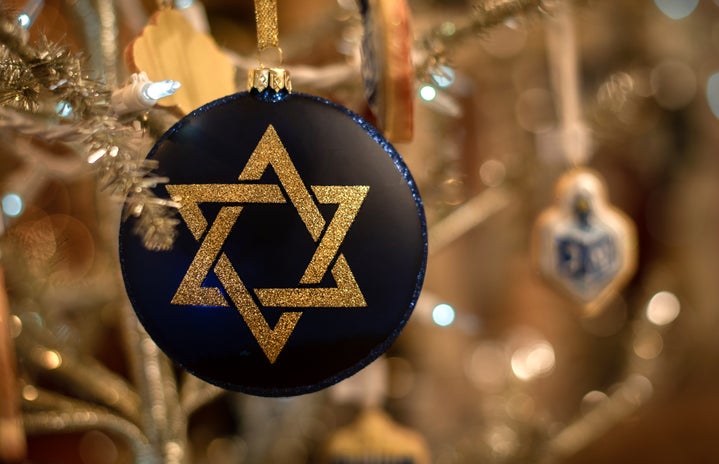Trigger Warning: This article contains sensitive topics including violence, war, and sexual abuse.
As someone who grew up Jewish in Pennsylvania, I learned quickly just how divisive religion could truly be. On my first day of high school, as my sister and I drove into the school parking lot, she turned to me and said, “You can’t tell anyone here that you’re Jewish.”
Early that next year, there was a mass shooting at the Tree of Life Synagogue located 20 minutes away from my house that left 11 Jews killed. I went to school the next day and was disgusted to find out that there would be no talk of this event. My high school offered no morning announcement, no moment of silence, no assembly, and no grief counseling, despite this being the largest anti-Semitic mass shooting in history and so close in proximity. My voice felt silenced for the first time that day.
Over the years, the Jewish-American community has maintained conflicting views on the Israeli government and the Israeli-Palestinian conflict. However, on Oct. 7, the hundreds of civilians violently killed by Hamas ambushes in Israel shattered the Jewish-American perception both emotionally and ideologically. Many American Jews have found themselves in solidarity after becoming more and more divided over Israel’s government.
As a Jewish American, these past few days have been filled with a mix of emotions. Following the ongoing attacks on Israeli civilians, several protests and rallies were held across the U.S., including in Times Square and in front of the Israeli Embassy in Washington, D.C., where hundreds of Americans showed up to support Palestinian liberation. They chanted “Resistance is justified” while waving Palestinian flags.
Hamas, a terrorist organization, is murdering civilians, taking hostages, and desecrating bodies. This is no longer a Palestine vs. Israel debate and it is no longer Muslim vs. Jew. It is now civilian vs. terrorist. Nothing about it is political nor should it be controversial.
Ever since the news broke, I have felt nothing but immense grief and fear for my community. It is unthinkable to consider carrying on as usual while people are being killed, raped, tortured, kidnapped, and having their bodies paraded across holy land. These are regular civilians just like you and me. Hundreds of infants, children, elderly people, and women have been murdered, raped, and kidnapped.
Yet I still see statements defending the terrorism in Israel. I hear silence from those around me. While grieving the deaths of those in my community, I see people excusing the murder and torture of civilians. I see people using my religion to excuse death and justify antisemitism. I see my loved ones removing the mezuzah from their homes. I see my friends taking off their Star of David necklaces. I see the message: Jewish lives don’t count. There are people who want me dead.
There’s no complexity here. This is a deliberate and methodical campaign of violence against Jewish people carried out by Hamas, a terrorist organization that rejects a two-state solution. Their agenda is clear. They do not seek peace. They do not envision Jews and Palestinians coexisting peacefully. Instead, they aspire to eradicate the Jewish presence entirely from the world. Take a moment to fully comprehend the gravity of this. I am not okay, and your Jewish friends aren’t either.
Mia, a fellow Jewish sorority sister of mine, spoke on the conflict saying, “I’m not very religious. I’m mainly culturally Jewish, but I do identify as an Israeli. My entire family is from Israel, I speak Hebrew at home, and I visit Israel every year. My connection to Israel is less about the religious aspect and more about the security it provides as a haven for Jewish people everywhere. We deal with so much antisemitism, and so much of it goes unrecognized because it isn’t considered as ‘serious’ as other forms of discrimination. But antisemitism is real and sometimes it feels like going to Israel is my only escape from it. It’s the only place where I can be Jewish or speak Hebrew freely without worrying about being the victim of a hate crime.”
Brandeis University professor Ronald Liebowitz says. “Politics, at least here, seem to be set aside for now. No one I know is looking at those issues of politics now. They’re looking at the savagery of these attacks.”
As students, we can only do so much. We can’t solve international conflicts or end terrorism, but we can choose to not condone it. Having a voice is where our power lies. Let’s use it.
Want to see more HCFSU? Be sure to like us on Facebook and follow us on Instagram, Twitter, TikTok, and Pinterest!


